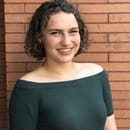“Because I’ve got some things to say.”
With these words, Frances McDormand, five-time Academy award nominee and two-time winner, stole the show at the 2018 Oscars with her acceptance speech. McDormand won Best Actress for her performance as Mildred Hayes, a grieving mother angry about the police force’s inability to catch her daughter’s killer, in Three Billboards Outside Ebbing, Missouri.
The word ‘inclusion’ was the highlight of McDormand’s speech as she used her precious few minutes on stage to support women in Hollywood. She called for all the female nominees in every category at the Academy Awards to take a stand, to celebrate their accomplishments and achievements in a male-dominated industry. She called on people in Hollywood to recognize these women and to finance their projects, set up meetings and actually listen to women. Most importantly, she subtly called out those who talk about diversity and inclusivity but don’t act on it. While this was an important moment, the real mic drop of the evening came at the end of McDormand’s speech when she said, “I have two words to leave you with tonight: inclusion rider.”
These two little words have the power to change Hollywood as we know it forever. This term, in this context, was created by Stacy Smith, a professor at the University of Southern California, in her 2016 TED Talk. Essentially, an inclusion rider can be included within a contract and mandate equality in casts and crew of a film. This would insure that the demographics of the cast and crew are representative of and reflect the location of the film. Smith, the lead author of a study that looked at diversity in movies, found that “of the 4,583 speaking characters analyzed from 2016’s top 100 films, 31.4 percent were female.” With an inclusion rider, this percentage would increase to 50 percent because that’s representative of the population. Smith also states that casts and crews would be made up demographically of 40 percent minorities, 20 percent people with disabilities and 5 percent people in the LGBTQIA+ community.
With the importance of inclusivity in mind, it’s quite possible that McDormand also asked all the female nominees in the audience to stand to point out the disparity between the male and female nominees in the room. If this is the case, this was a powerful, illustrative point as to why Hollywood needs inclusion riders. McDormand certainly got the attention of Hollywood as actresses Brie Larson and Elizabeth Banks and screenwriter Jack Thorne have publicly announced their personal support for inclusion riders. It appears that we are in a new era in movies, and in the rest of the world, where people are using their few moments on stage, literally and metaphorically, to take a stand for what they believe in. As McDormand said later on to reporters, “we aren’t going back.”



